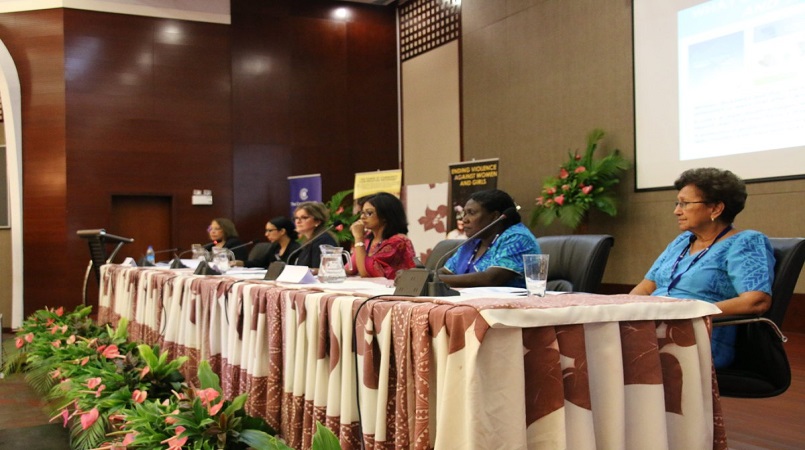
Women affairs ministers at a high-level Commonwealth meeting have promised to take action to end gender discrimination and violence.
The meeting outlined the steps needed to action the four-point plan including the importance of engaging with national, regional and international partners to mobilise communities - including men and boys - to change attitudes towards family violence
The ministers joined campaigners, senior government officials and civil society representatives at the 11th Women’s Affairs Ministerial Meeting in Apia, Samoa to explore solutions to burning issues that hamper women’s progress.
During the meeting the Commonwealth announced measures to achieve gender justice.
After four days of deliberation, they committed to a four-point plan with actions to get more women into leadership, end gender violence, address climate change and boost women’s economic empowerment.
Throughout the triennial meeting, leaders expounded gender equality as being critical in achieving the 2030 agenda and sustainable development goals (SDGs).
A joint statement at the conclusion of the meeting reaffirmed that the empowerment of women and girls will make an essential contribution towards the 17 SDGs.
The first female Secretary-General of the Commonwealth, Patricia Scotland, said at the ministerial meeting: “We need to do better for women and girls, because we need to do better for every single person within our loved commonwealth”.
“If we are to be truly wealthy, we have to enable the talent and hopes and aspirations of each and every one of our citizens to be realised.”
Outcomes also focused on working with traditional leaders to eliminate harmful customary practices such as child marriage and female genital mutilation.
East African law makers were given bench books to help improve laws that protect women against violence. The Commonwealth promised to roll this resource out to all regions.
Ministers at the meeting acknowledged the disproportionate impact of climate change on women and girls and committed to engage in mitigation and adaptation initiatives, including disaster preparedness, to build resilience in Commonwealth countries.
“This was a landmark meeting, because we were able to get a commitment from those in power to take action towards achieving gender equality,” said Amelia Kinahoi Siamomua, Commonwealth Head of Gender.
“On our part, we will step-up our advocacy for increased participation of women in leadership at all levels of decision making, and in all sectors ‘’she added.
“We will also continue to help women get better access to finance to deal with the impact of climate change, through initiatives such our climate finance hub.”
“The Commonwealth will continue to work with governments and our partners, because we believe that together we have all the technical expertise and resources needed to overcome the obstacles that stand in the way of women’s progress.”
